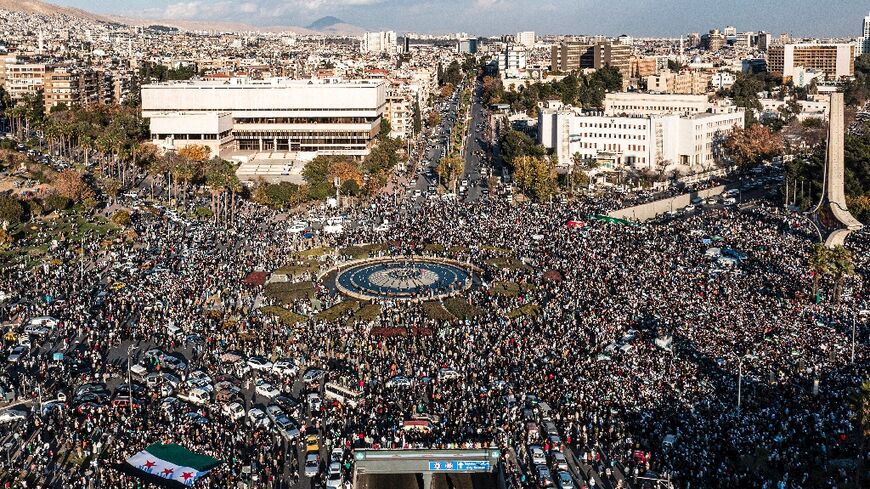Syria's Assad attends Eid prayers in former rebel bastion

Syrian President Bashar al-Assad Saturday took part in Eid al-Adha prayers on the second day of his first visit to ex-rebel-stronghold Aleppo in over a decade, state media reported.
Assad began the highly symbolic visit on Friday to Syria's second city, formerly held by rebels and jihadists before it was recaptured in 2016 with crucial Russian backing, marking a major turning point in the country's 11-year war.
"President Bashar al-Assad on Saturday performed Eid al-Adha prayer at Sahabiy Abdallah bin Abbas mosque in Aleppo city," state news agency SANA reported.
The news agency also released a message in which Assad wished the people of Syria and soldiers in the military a happy Eid.
Much of Aleppo was disfigured by the conflict, including its historic Old City, where Assad and his family were pictured walking near the Grand Umayyad mosque on Friday.
SANA on Saturday published images of Assad surrounded by a crowd of clerics and worshippers clamouring to greet him.
Before the war, the northern city -- considered to be one of the world's longest continuously inhabited -- boasted markets, mosques and public baths, but a brutal siege on rebels left it disfigured.
Fighting damaged as much as 60 percent of Aleppo's Old City, according to estimates by the UN's cultural agency, UNESCO.
Aleppo province saw fierce battles between government forces, rebels and Islamic State group jihadists from 2012 until Russian-backed government forces gradually ousted them.
On Friday, Assad visited a major power plant in the province's eastern countryside to supervise its partial relaunch after war damage.
He was also present for the relaunching of a water pumping station, statements from the Syrian presidency said on Telegram.
Electricity networks and other infrastructure across the country were ravaged by the war, which is estimated to have killed nearly half a million people and displaced millions.
The Syrian government does not have authority over all of Aleppo province, with areas on the Turkish border still controlled by Ankara-backed groups and the rival Kurdish-led Syrian Democratic Forces.





